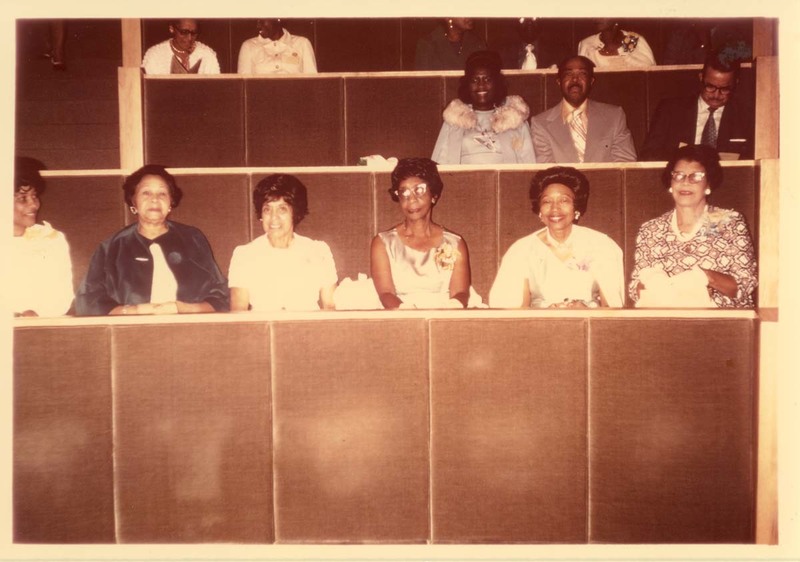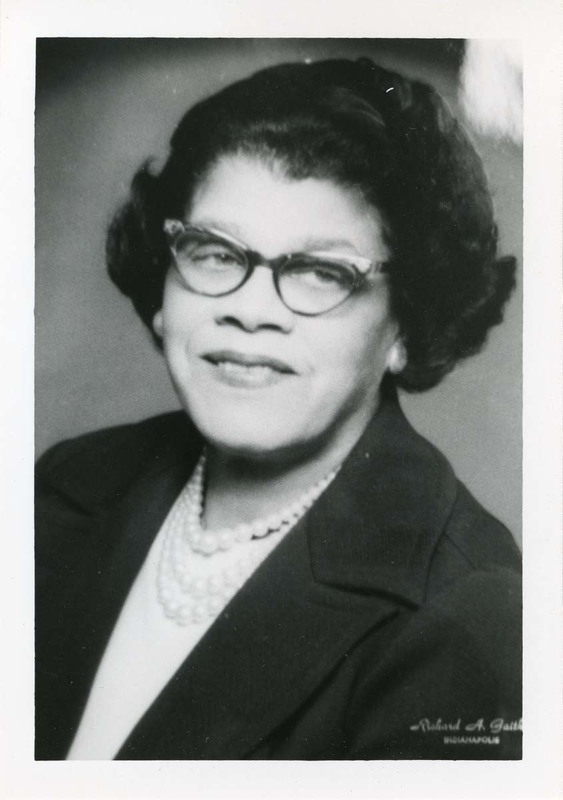Sigma Gamma Rho Sorority
In 1922 seven Black women educators met to form the professional organization Sigma Gamma Rho Sorority, dedicating themselves to raising the standards of teachers and united by a belief in the power of education to effect racial uplift. In addition, as many Greek letter professional organizations were segregated, the Sorority founders specifically desired to provide professional support to Black women teachers.
Most of the Sorority founders were graduates of two-year teaching schools or would soon graduate, and five would go on to earn bachelor’s or master’s degrees from Butler University or other institutions. Sigma Gamma Rho was incorporated as a national collegiate sorority in 1929, when a charter was granted to the Alpha Chapter at Butler University. The early members of the sorority experienced segregated educational opportunities as Black women as well as limited professional opportunities as teachers.
Sigma Gamma Rho was founded while Butler was located in Irvington. A year after the sorority’s founding D. C. Stephenson, the Grand Dragon of the Indiana branch of the Ku Klux Klan, bought a house less than half a block from the Bona Thompson Library. Stephenson used this house for entertaining and parties and not as his primary residence. There are no surviving documents with evidence that Stephenson or the Klan had any ties to or influence over University administration—which continued to admit students of color and allowed Black adult education classes to meet in its buildings—or targeted Sigma Gamma Rho members—none of the sorority’s founders lived in Irvington and Sigma Gamma Rho did not regularly meet on the University campus.
Today Sigma Gamma Rho has more than 500 chapters in the United States and abroad, and more than 100,000 women have been collegiate and professional members. The Sorority is nationally and internationally known as a Black Greek letter organization and a member of the National PanHellenic Council, which is commonly referred to as The Divine Nine. Sigma Gamma Rho is the only Greek organization founded at Butler University and the only sorority in The Divine Nine to be founded at a predominantly white institution.
For more information on Sigma Gamma Rho Sorority, please visit The Centennial Anniversary of Sigma Gamma Rho: A Historical Look at the Sorority and Butler University, a 2022 exhibit created by the Department of Special Collections, Rare Books, and University Archives at Butler University Libraries.
Black people experienced segregation everywhere in early-20th-century America, and education was not exempt. While many Midwestern universities accepted and conferred degrees to non-white students by the 1920s, such amenities as housing and dining at campuses across the country barred entrance or use by Black students. “Separate but equal”—a federal doctrine from 1896 (Plessy v. Ferguson) to 1954 (Brown v. Board of Education)—alternatives were provided for Black students instead.
Prior to the quota on Black students instituted in 1927, Butler University admitted all students of color on an equal basis to whites. While primary University facilities were not segregated, there was only one small dormitory for women on the Irvington campus—and none on the University’s current campus until 1954—and most students rented rooms in the community or commuted. Especially in the predominantly white neighborhood of Butler-Tarkington immediately surrounding the Fairview campus, Black students would not have been able to easily find nearby housing.
This segregation found within universities also existed in student organizations, both institutionally affiliated and not. Greek life was a prime example, as many Greek letter collegiate and professional organizations prohibited the participation of Black students. Prior to Sigma Gamma Rho, collegiate sorority Alpha Kappa Alpha had a Butler chapter, and fraternities Alpha Phi Alpha and Kappa Alpha Psi accepted students from Butler as well as from other Indianapolis schools. These three Black Greek letter organizations are members of the National Pan-Hellenic Council.

